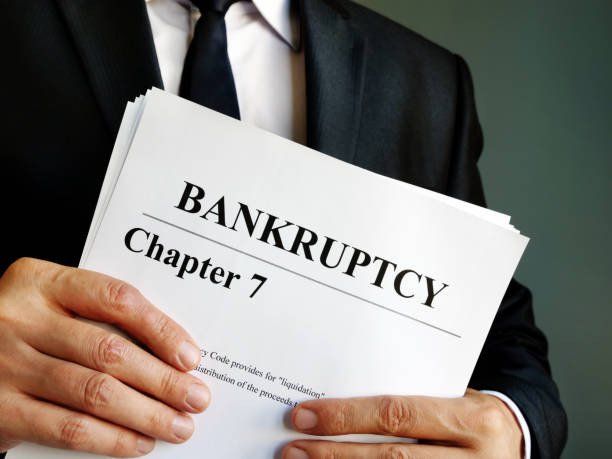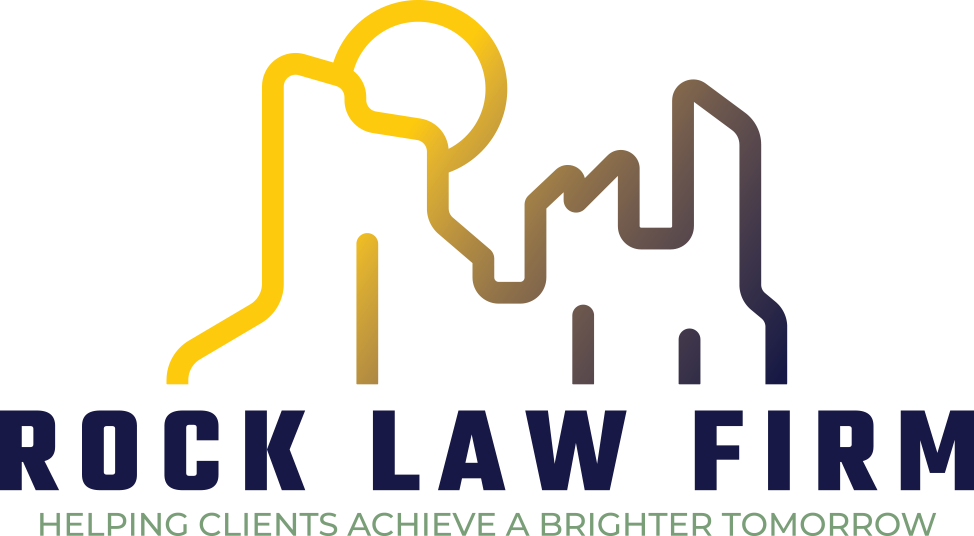
Chapter 7 Bankruptcy: What It Is and How to File It in Phoenix, AZ
Rock Law Firm
Chapter 7 bankruptcy, also known as "liquidation" bankruptcy, is a process used to discharge unsecured debts. Personal loans, credit card debt, and medical bills are examples of dischargeable debts. To pay off some of your debt, you may have to give up some of your possessions or assets.
Child support, alimony, tax debts, most student loans, and court fees, on the other hand, are not eligible through this process. Chapter 7 bankruptcy is the most common and fastest type of bankruptcy, and it can help you reset your finances by removing your debts in as little as four to six months. In addition, if you have personal liability for business debts or have signed a personal guarantee, Chapter 7 bankruptcy can help you eliminate responsibility.
Although filing for Chapter 7 bankruptcy may have a negative impact on your credit report or worthiness, it is a process that will allow you to begin improving your credit scores within months.
How Does Chapter 7 Bankruptcy Work?
After filing for chapter 7 bankruptcy, a bankruptcy court will issue or place an automatic temporary stay. Creditors will be forced to stop collecting debts, foreclosing on your home, evicting you, repossessing your property, turning off your utilities, or garnishing your wages as a result of this.
In addition, the bankruptcy court will legally seize your property and appoint a bankruptcy trustee to handle your case. Your trustee's job will be to oversee your chapter 7 by reviewing your assets and finances. Your assets, including those that the bankruptcy court will not allow you to keep, such as nonexempt property (property that is not protected in bankruptcy), and use the proceeds to repay your creditors.
The trustee will also organize a "creditor meeting" between you and your creditors in a courthouse, where you will be required to respond to questions about your filing. After the process is completed, which is likely to be four to six months after you initially filed for bankruptcy, the rest of your remaining debts are discharged, which means you won't have to continue making payments.
How Does Chapter 7 Bankruptcy Work?
After filing for chapter 7 bankruptcy, a bankruptcy court will issue or place an automatic temporary stay. Creditors will be forced to stop collecting debts, foreclosing on your home, evicting you, repossessing your property, turning off your utilities, or garnishing your wages as a result of this.
In addition, the bankruptcy court will legally seize your property and appoint a bankruptcy trustee to handle your case. Your trustee's job will be to oversee your chapter 7 by reviewing your assets and finances. Your assets, including those that the bankruptcy court will not allow you to keep, such as nonexempt property (property that is not protected in bankruptcy), and use the proceeds to repay your creditors.
The trustee will also organize a "creditor meeting" between you and your creditors in a courthouse, where you will be required to respond to questions about your filing. After the process is completed, which is likely to be four to six months after you initially filed for bankruptcy, the rest of your remaining debts are discharged, which means you won't have to continue making payments.
Who Qualifies For Chapter 7 Bankruptcy?
There are several requirements that you’re supposed to meet to file for chapter 7 bankruptcy:
You must complete either group or individual credit counseling from an approved credit counseling agency within 180 days of filing this type of bankruptcy.
You must either pass the means test or have an average monthly income that is less than your state's median income for a household of the same size over the previous six months. However, even if you fail the means test, you may still be able to file for chapter 13 bankruptcy.
For the previous eight years, you should not have filed for Chapter 7 bankruptcy.
You should not have filed a Chapter 13 bankruptcy in the previous six years.
At least 181 days have passed since you last filed for Chapter 7 or Chapter 13 bankruptcy and were dismissed.
Even if you qualify, the court may deny your eligibility if it determines that you intended to defraud your creditors. For example, if your intention was to use credit card debt or take out loans and avoid paying them by filing for Chapter 7 bankruptcy.
How to File for Chapter 7 Bankruptcy in Arizona
A bankruptcy attorney can help you with a Chapter 7 bankruptcy filing. This type of bankruptcy process will include:
1. Attend Counseling
Within 180 days of filing, you will be required to undergo a group or individual credit counseling course. The course can even be taken over the phone or online by an approved credit counseling agency.
2. Fill Out The Forms
You will then be required to complete bankruptcy forms, which you should do with the assistance of a lawyer to ensure that all important information, such as a property list, creditors, recent transactions, exemptions, income, and other vital financial information, is recorded. There is a fee involved, but if your income falls into a certain category, you can request a fee waiver to file your bankruptcy case.
3. Trustee Will Take Over
After the court accepts your documents, your bank trustee will take over to verify your bankruptcy forms. Recent paychecks, bank statements, business documents, and tax returns are examples.
4. Creditor Meeting
The bank trustee will set up a meeting with you, your creditors, and your lawyer. Your meeting may be brief, and you will be asked questions about your paperwork and financial situation.
5. Nonexempt Property and Secure Debts Are Handled
The trustee will decide which non-exempt properties are worth selling to offset your debts. Also, if it was a secured debt, your trustee can advise you on which property held as collateral must be returned to a creditor, but you can negotiate to redeem or repay your creditor the amount worth today. Secured debts can be reaffirmed, which means they can be paid back in installments.
6. Attend Another Course
When waiting for bankruptcy discharge of your case by the court, you will need to attend another financial education course and remember to take the certificate to the court after completion. The course will be taken at one of the qualified nonprofit credit counseling agencies.
7. Wait For Discharge Notice
Your debts may be discharged within 60 to 90 days of the hearing. Your case can be closed shortly after your debts are discharged.
Why Choose Our Experienced Bankruptcy Attorneys in Phoenix, AZ?
If you need a bankruptcy lawyer to successfully handle your Chapter 7 bankruptcy case in Phoenix, AZ, contact Rock Law Firm. We will walk you through the entire process and ensure that your case is handled professionally and without errors or delays. We will ensure that your case is successful and that your debts are discharged so that you can regain your financial freedom.
Our bankruptcy attorneys are well-trained, personable, and knowledgeable. You will feel at ease working with us as you strive to improve your financial situation. We will patiently walk you through all of your options in your bankruptcy case so that you can regain financial stability and get your debts discharged. Contact us today and let us schedule an appointment for consultation.
